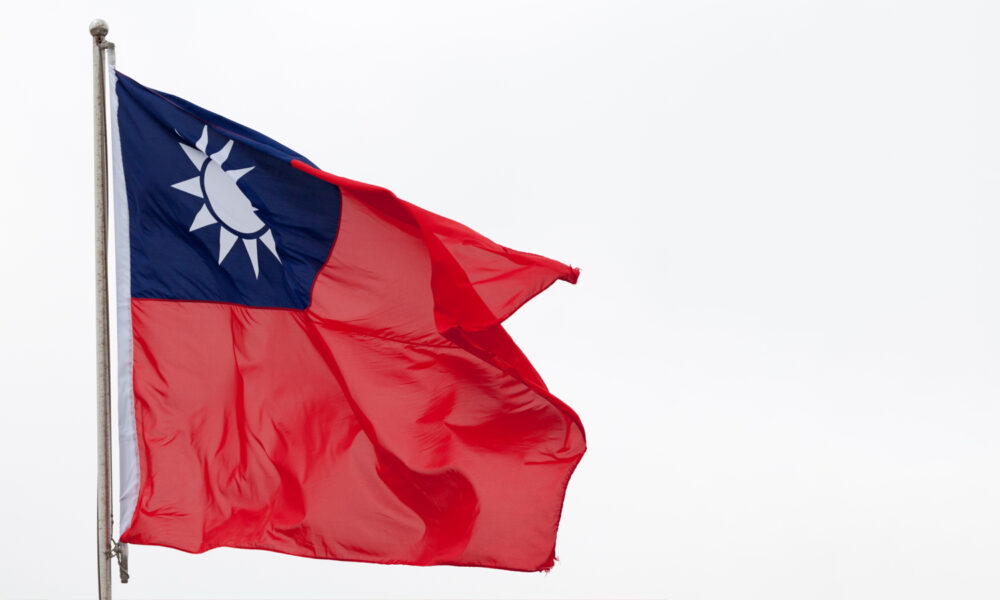Yes. Both sides are preparing for that war. Both sides also have nuclear weapons. China declared it will never use them first under any circumstances, but US policy allows for the first use of nuclear weapons if victory cannot be assured by other means. China has promised to retaliate if struck first. So, a nuclear war over Taiwan, while unlikely, is possible.
Origins of the conflict
China gave Taiwan to Japan in 1895 after losing the Sino-Japanese War. In 1943 the leaders of the United States, the United Kingdom and the Republic of China agreed Japan must give Taiwan back to China at the end of World War II. That agreement was incorporated into the instrument of Japan’s surrender.
A civil war in China led to the establishment of two rival Chinese governments: the People’s Republic of China (PRC), which controlled the mainland, and the Republic of China (ROC), which nominally governed all of China but by 1949 was confined to a few offshore islands, including Taiwan.
The United States supported the ROC and helped it keep China’s seat in the United Nations (UN). But in 1971 the UN expelled the ROC and recognized the PRC as the “only legitimate representative of China.” That decision remains the legal basis for Taiwan’s exclusion from the World Health Organization and all other UN-affiliated entities.
Most nations have diplomatic relations with the PRC. Few continue to recognize the ROC. The United States terminated diplomatic relations with the ROC and established diplomatic relations with the PRC in 1979.
Congressional imperatives
That same year the US Congress passed the Taiwan Relations Act, which says the US-PRC relationship “rests on the expectation that the future of Taiwan will be determined by peaceful means.” It also says any attempt “to determine the future of Taiwan by other than peaceful means” would be “a threat to the peace and security of the Western Pacific area and of grave concern to the United States.”
President Carter withdrew from the US-ROC mutual defense treaty in 1979. But the Taiwan Relations Act restored the essential provisions of the treaty by requiring the United States to “provide Taiwan with arms” and to “maintain the capacity of the United States to resist any resort to force.”
The Congress also preserved all existing US legal, commercial and cultural relations with the ROC. In many ways the Taiwan Relations Act treats Taiwan as an independent country under US military protection. Many members of Congress refer to Taiwan as a US ally.
The path to war
While the PRC never renounced the right to resort to force to determine the future of Taiwan, its leaders expected to arrive at a peaceful agreement with their ROC rivals, who had always agreed Taiwan was a part of China. In November 1992 the two sides reached a consensus that Taiwanese independence was not an option.
Unfortunately, the 92 consensus was reached without consulting the people of Taiwan. For much of its history the ROC was an authoritarian regime that ruled Taiwan by fiat and ruthlessly repressed dissent. ROC leaders imposed martial law when they first arrived on the island and did not lift it until 1987.
Alternative conceptions of Taiwan not grounded in the history of the Chinese civil war emerged shortly afterwards. Lee Teng-hui, who shared some of those conceptions, won Taiwan’s first democratic election for president in 1996. He implicitly rejected the 92 consensus by suggesting negotiations with the PRC should be based on “state to state relations.”
Supporters of the 92 consensus won back the presidency in 2008 but lost it again in 2016 to Tsai Ing-wen, who explicitly rejected it. Her reelection by a large margin in 2020 suggests popular support for the 92 consensus is decreasing.
The PRC has an anti-secession law that says if “possibilities for a peaceful reunification should be completely exhausted, the state shall employ non-peaceful means.” PRC leaders could interpret Tsai’s reelection and her assertion that Taiwan is already an independent country as fulfilling that condition. Should PRC leaders decide to act upon that interpretation, US leaders may feel compelled, under the terms of the Taiwan Relations Act, to use non-peaceful means to try to stop them.
The United States and China would be at war over Taiwan.
President Eisenhower faced that same danger during the Taiwan Strait Crisis. A new study of the crisis reveals US threats to use nuclear weapons were counterproductive. Eisenhower’s willingness to question military advice, exercise patience and pursue diplomacy helped avoid a nuclear war. As US leaders prepare for the next Taiwan crisis, Eisenhower’s experience may help them do the same.
Header image: Alan Wu/Flickr

